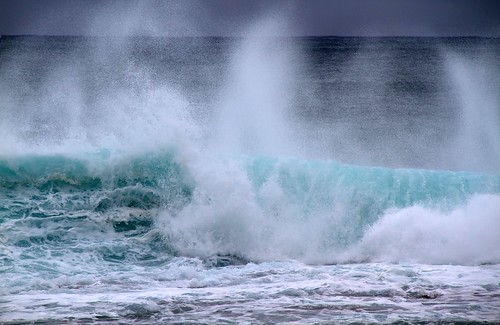 Economics, science, equity and public opinion provide a watertight case for reforming the way our ocean is governed and managed, said the Global Ocean Commission at the conclusion of its inaugural meeting, in Cape Town, South Africa.
Economics, science, equity and public opinion provide a watertight case for reforming the way our ocean is governed and managed, said the Global Ocean Commission at the conclusion of its inaugural meeting, in Cape Town, South Africa.Fisheries practices that prevent the ocean from providing as much food as it could, inequalities in access to ocean resources and continuing damage to marine life are all parts of a picture that could be vastly improved with better management, they said.
The Global Ocean Commission is an independent group of leaders from politics, business, economics, law and development, jointly chaired by former Costa Rican president José María Figueres, Trevor Manuel, minister in the South African Presidency, and former UK foreign secretary David Miliband MP.
Over the next 15 months or so, it will formulate proposals that could, if implemented, reverse degradation of the ocean and restore it to full health and sustainable productivity.
First steps taken
"We have taken our first steps into these waters, and I have to say that we have travelled a long way in just a few days," said Manuel.
"We have listened to experts and had a very productive dialogue with stakeholders; we have discussed the problems, we have talked through some initial ideas on possible solutions," he said.
"None of us was foolish enough to think that charting a future for the ocean would be easy; but from where we are now, I can say that it looks feasible."
The commission's work will focus on the high seas, the waters that lie outside the control of individual governments and make up 45% of the Earth's surface. They sit under the UN Convention on the Law of the Sea (UNCLOS), which passed its 30th anniversary in December.
As legal specialists told the commission, UNCLOS has been very successful in some areas, such as merchant shipping. But it has been much less successful at conserving biodiversity or maximising the economic return from fisheries.
"When you look at the way the high seas are governed and managed, you see a system that is seriously fragmented and, in some important ways, simply out of date," said Miliband.
"On land, when we look around the world, we see how crucial good governance is for economies and for the environment, and the high seas are no different; reform is imperative."
85% of the public worldwide support sustainability
On the eve of the meeting, the commission released results of a global survey indicating that 85% of the public worldwide support sustainable management of the ocean, with just 5% opposed.
A key concern running through the meeting was equity. The commission heard peer-reviewed evidence showing that developing countries are disproportionately affected by overfishing, and lack the technical and political resources to gain an equitable footing in management bodies.
"Hunger is most serious in the developing world, while the nations that spend the most on harmful fishing subsidies are developed ones," said Commissioner Obiageli Ezekwesili, former Nigerian education minister and founder of Transparency International.
"On our increasingly crowded planet, such disparities are simply out-dated; we have to put them behind us if we are to solve problems that can only be solved jointly," she said.
During their formal sessions, commissioners heard from experts in science, economics and governance, from South Africa and further afield. In two open meetings, stakeholders from Southern Africa, including people in ocean businesses, local and deep-water fishers, naval officers, conservationists, trade unionists and academics, gave commissioners their perspectives.
Reasons for optimism shared
"The objective briefings we received from scientists and economists outlined a serious and one might almost say depressing set of problems on the ocean, and that picture was re-inforced by some of the local stakeholders we met," said Figueres.
"But other stakeholders were good enough to share with us some reasons for optimism and some ideas for change that we will take on board, and we're grateful to them all for their input.
"Thinking back to the South Africa of 25 years ago, we can only receive inspiration from the changes its people wrought, and believe that the changes we need on the high seas are possible too if we work hard enough - which we will."
Over the next 12-15 months, the commission will hold further formal meetings and engage with stakeholder communities in various countries around the world.
Its recommendations will feed into a number of international processes, including the United Nations General Assembly deliberations on conserving biodiversity in waters beyond national jurisdiction, scheduled for September 2014.
Source: Biz Community
Image courtesy of ahisgett via Flickr (CC BY 2.0)
